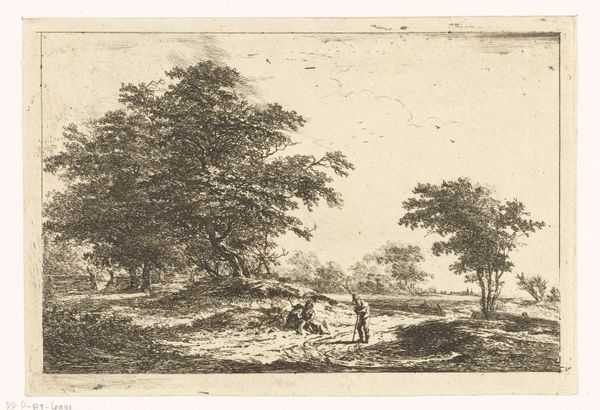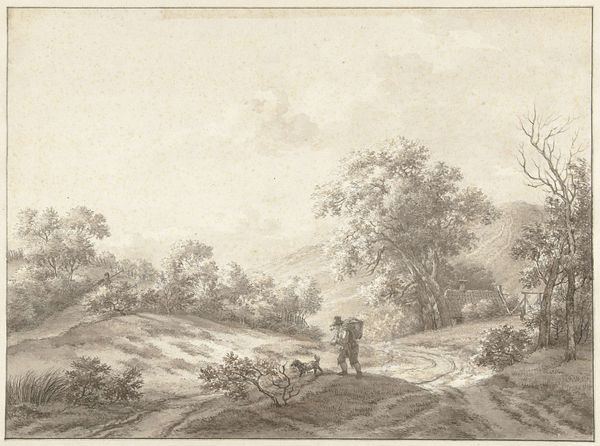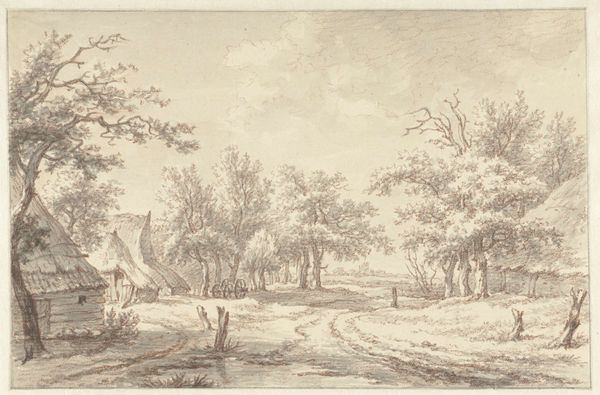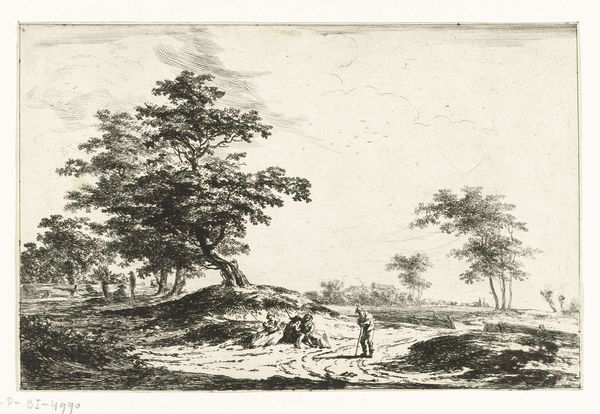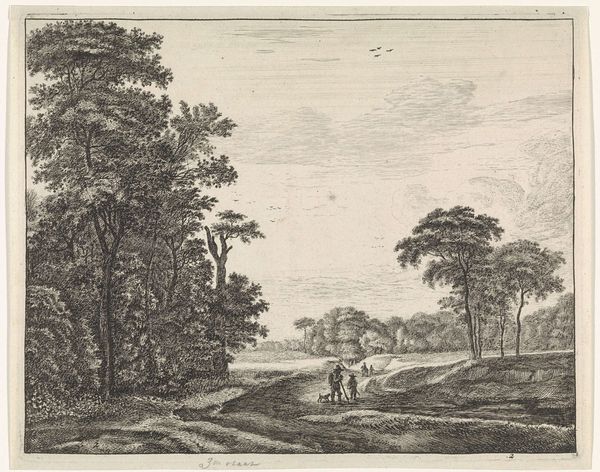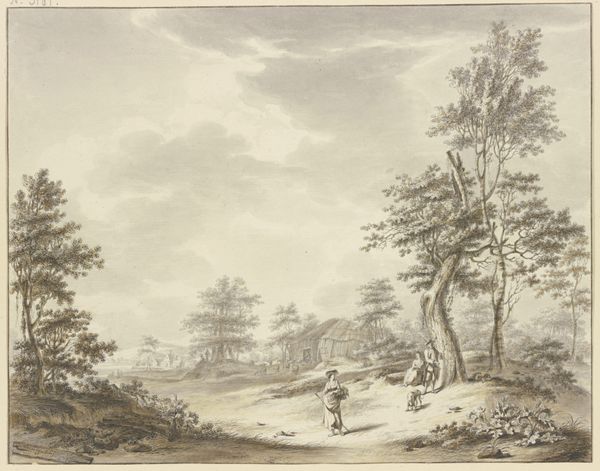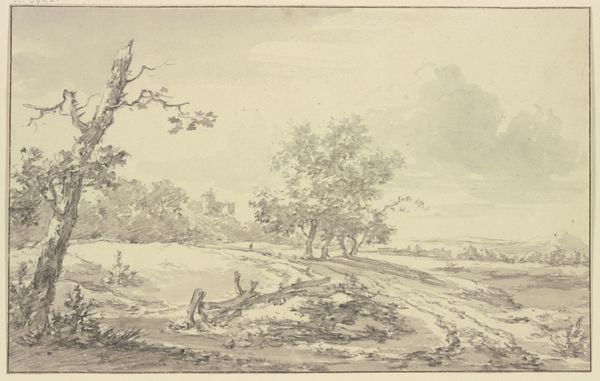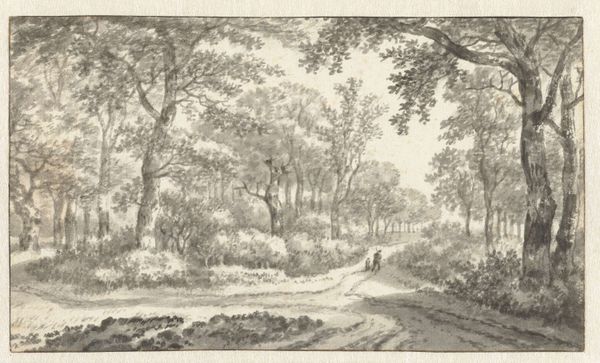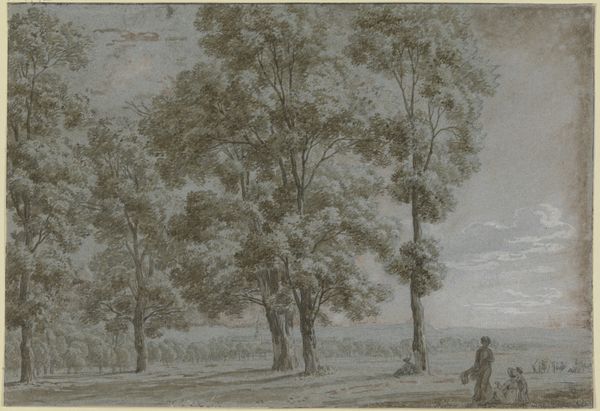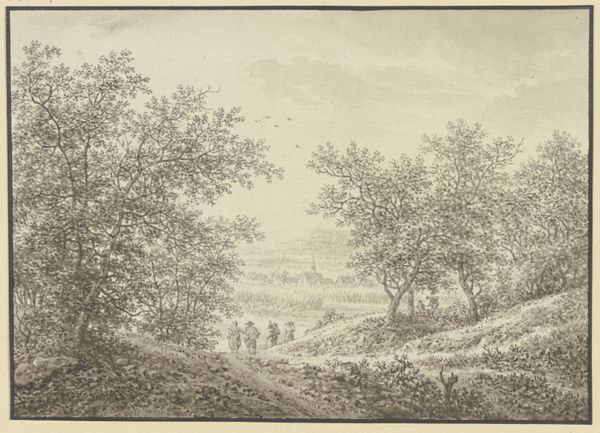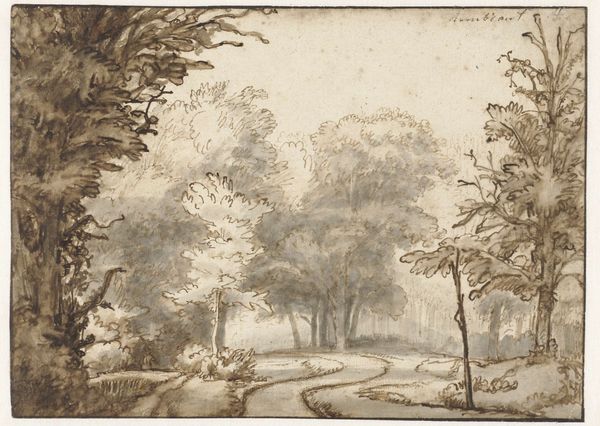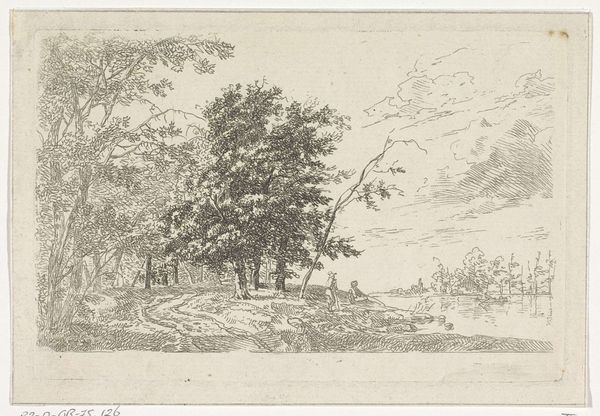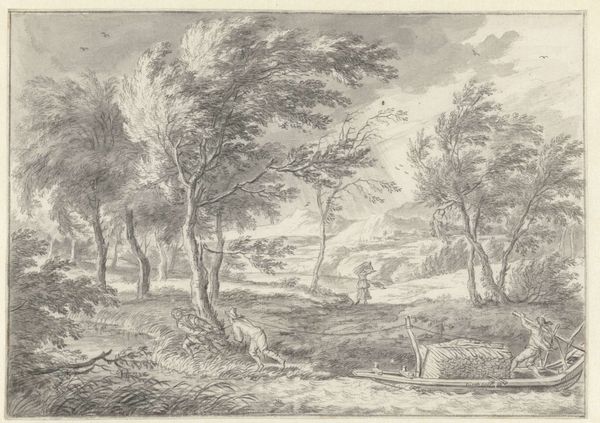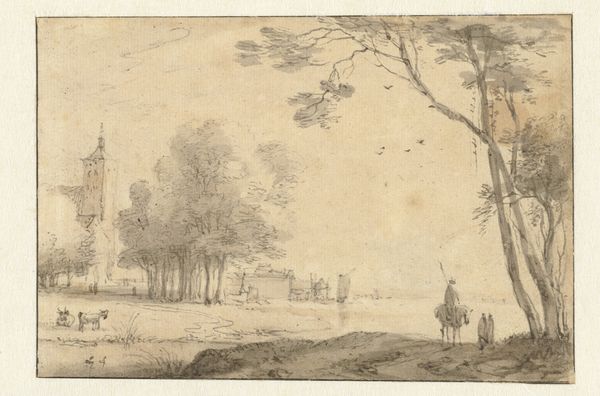
Dimensions: height 247 mm, width 382 mm
Copyright: Rijks Museum: Open Domain
Jacob Cats made this drawing, *De Herenweg met het Posthuis*, with pen and brown ink, and brush and gray ink, during the 18th century. The subtle tonality of the washes brings to life this seemingly quiet scene. While the subject matter may appear bucolic, the drawing itself speaks to an increasingly urban and commercial society. Paper production in the 1700s relied on labor-intensive milling processes, involving the careful pulping and pressing of fibers, often linen rags, into sheets. Ink manufacture similarly required skilled mixing of pigments, binders, and solvents. The artist's virtuosity is evident in the delicate rendering of textures, from foliage to the suggestion of rutted earth on the road. Drawings like this were luxury items, often collected by wealthy patrons. They represent a confluence of material production, artistic skill, and economic exchange that underpinned the Dutch Golden Age. This detailed execution elevates the drawing beyond mere illustration, inviting us to consider the craft and commerce intertwined within this seemingly simple landscape.
Comments
No comments
Be the first to comment and join the conversation on the ultimate creative platform.
